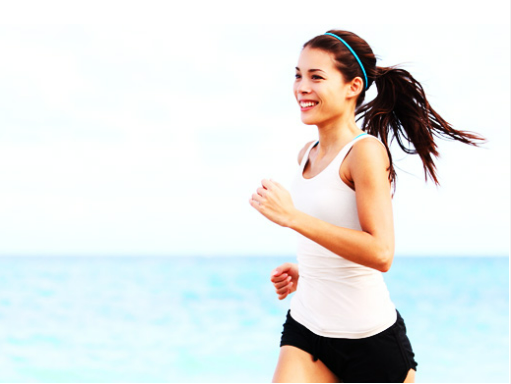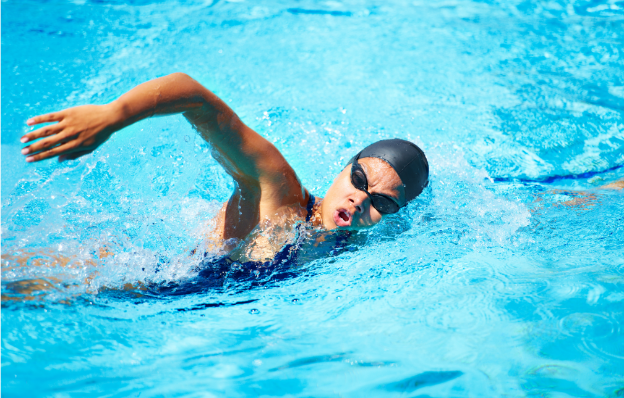Regular exercise - the key to healthy skin
Exercise is not only good for your heart, lungs, and brain… it's also key to healthy skin.
1. Benefits of exercise for the skin
Dr. Ellen Marmur (dermatologist) of Mount Sinai School of Medicine said that exercise brings many benefits to the skin:
- Skin care:Blood carries oxygen and nutrients to cells throughout the body, including the skin. By increasing blood flow, exercise helps nourish skin cells.
- Skin detoxification:In addition to delivering oxygen, blood flow also helps carry waste products, including free radicals, away from cells. By increasing blood flow, exercise helps “detoxify the skin,” helping to cleanse the skin from the inside out.
-Stress relief:Exercise has also been shown to help reduce stress. Stress is known to make some skin conditions worse. Reducing stress can help reduce acne, eczema, and more. Although there is no evidence of a link between stress and skin, studies show that stress increases the activity of the sebaceous glands, causing acne.
-Helps firm muscles:Toning your muscles doesn't directly affect your skin, but firmer muscles will definitely help you look better overall.
 |
Exercise - the key to healthy skin. |
2. Some notes when exercising
Exercise can pose risks to your skin, so it's important to protect your skin while you work out. The main danger when you exercise outdoors is sun exposure, says April Armstrong, MD, a dermatologist at the University of California. Sunburn increases your risk of skin cancer and accelerates skin aging, negating any benefits your skin may have gotten from exercising.
Therefore, the best advice is to avoid exercising outside during peak sun hours, between 10am and 4pm. However, if you must exercise during peak sun hours, wear sunscreen.
Many athletes don’t want to wear sunscreen because it gets in their eyes when they sweat and stings, says Dr. Marmur. But choosing a pH-balanced sunscreen can help. If you have naturally oily skin or have trouble with acne, choose a gel or oil-free product or a powder with SPF protection. For added protection, wear clothing that covers as much skin as possible and a hat to shade your face, if possible.
Another skin problem that can arise during exercise is psoriasis, which can cause a rash. For people prone to acne, the irritation and increased sweating caused by tight workout clothes can lead to a form of acne called acne mechanica (acne caused by constant friction or pressure on the skin).
Two keys to prevention are wearing moisture-wicking clothing, such as bras and hats, to keep skin drier and cooler, and showering soon after exercise.
Wearing loose-fitting workout clothes can also help. Make sure your skin is clean before you work out to avoid clogging pores and leading to breakouts. Avoid wearing makeup when you work out. After showering, apply a soothing moisturizer...
3. Dealing with some skin conditions that "flare up" when exercising
If you have skin problems like acne, psoriasis… you may need to take special care to keep your skin protected while exercising, but don't let skin problems stop you from being active.
 |
People with rosacea can choose swimming as an exercise. |
- For people with rosacea:The increased body temperature and flushing of the skin during exercise can trigger flare-ups. Dermatologists say the best strategy is to exercise in a cool environment.
One of the best options is swimming, as the water helps cool your skin even as your body temperature increases. However, remember to moisturize your skin afterward, as the chlorine in swimming pools can dry out your skin.
Alternatively, take a brisk walk in an air-conditioned shopping mall or wait until a cool evening to jog outside.
If you experience redness and overheating during exercise, apply a cool compress to the affected areas immediately after your workout.
- People with eczema or psoriasisFlare-ups can also occur after strenuous activity. Moisturize before exercising. Be especially careful to moisturize your arms and legs, and areas where your skin folds (armpits, groin).
If possible, exercise in a cool environment to reduce sweating and the need to shower after exercise. Showering too often can dry out your skin and aggravate eczema and psoriasis.
Physical activity can be challenging for some, but we encourage all patients with psoriasis and eczema to exercise to improve their overall health. While there may be occasional temporary flare-ups, many patients see long-term improvement in their condition, says Dr. Armstrong.
